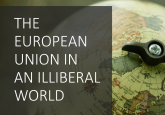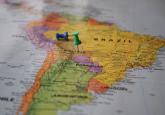
The second Trump presidency seems to have sealed the end of the international liberal order established after World War II. One should not romanticise this order, which also began with brutal wars of independence, and then various Cold War proxy wars. But, when the USSR and Eastern Europe transitioned from central planning and one-party government from 1989 onwards, the world appeared to be moving towards a generalised form of liberal democracy, and more peaceful international relations. The so-called "holiday from history" in the 1990s was nevertheless marked by the horrors (most notably the Rwandan genocide). Yet the international liberal order was still being deepened, for example, as the International Criminal Court was established in 1998, as China joined the WTO in 2001, and with the signing of the Paris Climate Agreement in 2015. However, the 21st century has also seen this edifice crumble, especially when the United States and its allies went to war illegally with Iraq in 2003 (after 9/11), when Russia fully invaded Ukraine in 2022, and when the Netanyahu government launched its full-scale war of destruction on Gaza, following the terrible Hamas attacks on 7 October 2023.
The European Union (EU) has in many ways been the most thorough creation of the international liberal order, and its upending – especially by the EU’s historical ally the US – poses a multi-dimensional challenge to the Union. The immediate security and trade threats are obvious enough. But more challenging still are the rise of nationalism and great power geopolitics, historical forces which the whole European project has been designed to overcome. Moreover, the rise of illiberalism across the globe also profoundly threatens international cooperation in absolutely vital areas like climate change and biodiversity, as well as more on prosaic issues like finance and artificial intelligence. This e-book is the follow-up publication to an online conference organised by the Global Governance Research Group of the UNA Europa university alliance, which took place in June 2025. It brings together a wide range of contributions which seek to address the complex internal and external challenges of illiberalism to the EU, along with the Union’s capacities and failures in dealing with these.
E-Book Editor: Nicholas Sowels, Jan Wouters, Maria Latorre and Michał Dulak
Image: Suzy Hazelwood














